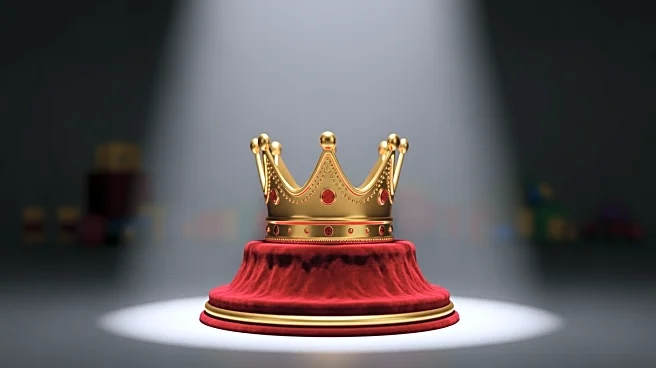What's Happening?
The Mowbray siblings, Nick, Mat, and Anna, have built a billion-dollar toy empire with their company Zuru, which specializes in affordable toys like Bunch O Balloons. The company, founded in 2003, operates
in 120 countries and generates over $400 million in annual sales. Zuru is based in Hong Kong, allowing the siblings to benefit from low tax rates and invest in automation. The company has remained debt-free and has not taken outside funding, aside from an initial $20,000 loan from their parents. The siblings are now expanding into consumer goods with a new venture called Zuru Edge, which includes products like diapers and pet food.
Why It's Important?
The expansion into consumer goods represents a significant diversification for Zuru, potentially increasing its market reach and revenue streams. This move could impact the consumer goods industry by introducing new competition, particularly in categories like diapers and pet food. The Mowbray siblings' strategy of leveraging their expertise in automation and manufacturing from the toy industry could lead to cost efficiencies and competitive pricing in the consumer goods sector. This expansion may also influence other toy manufacturers to explore similar diversification strategies to mitigate the risks associated with the volatile toy market.
What's Next?
Zuru Edge's first product, Rascals & Friends diapers, is expected to generate over $60 million in sales this year. The Mowbrays plan to introduce additional products, including laundry detergent and vitamins, as part of their consumer goods line. The success of these products will likely determine the future direction of Zuru's diversification efforts. Retailers such as Target are potential partners for these new offerings, and their response will be crucial in establishing Zuru Edge's market presence. The siblings' ability to innovate and adapt to consumer trends will be key to sustaining their business growth.
Beyond the Headlines
The Mowbray siblings' journey from a small family project to a billion-dollar enterprise highlights the potential of entrepreneurship and innovation in the global market. Their story underscores the importance of adaptability and resilience in business, as they have navigated challenges such as legal disputes and market rejections. The ethical considerations of their business practices, particularly regarding product imitation, may continue to be a point of contention as they expand into new markets. The outcome of ongoing legal disputes, such as the lawsuit with Lego, could have implications for their business model and reputation.








